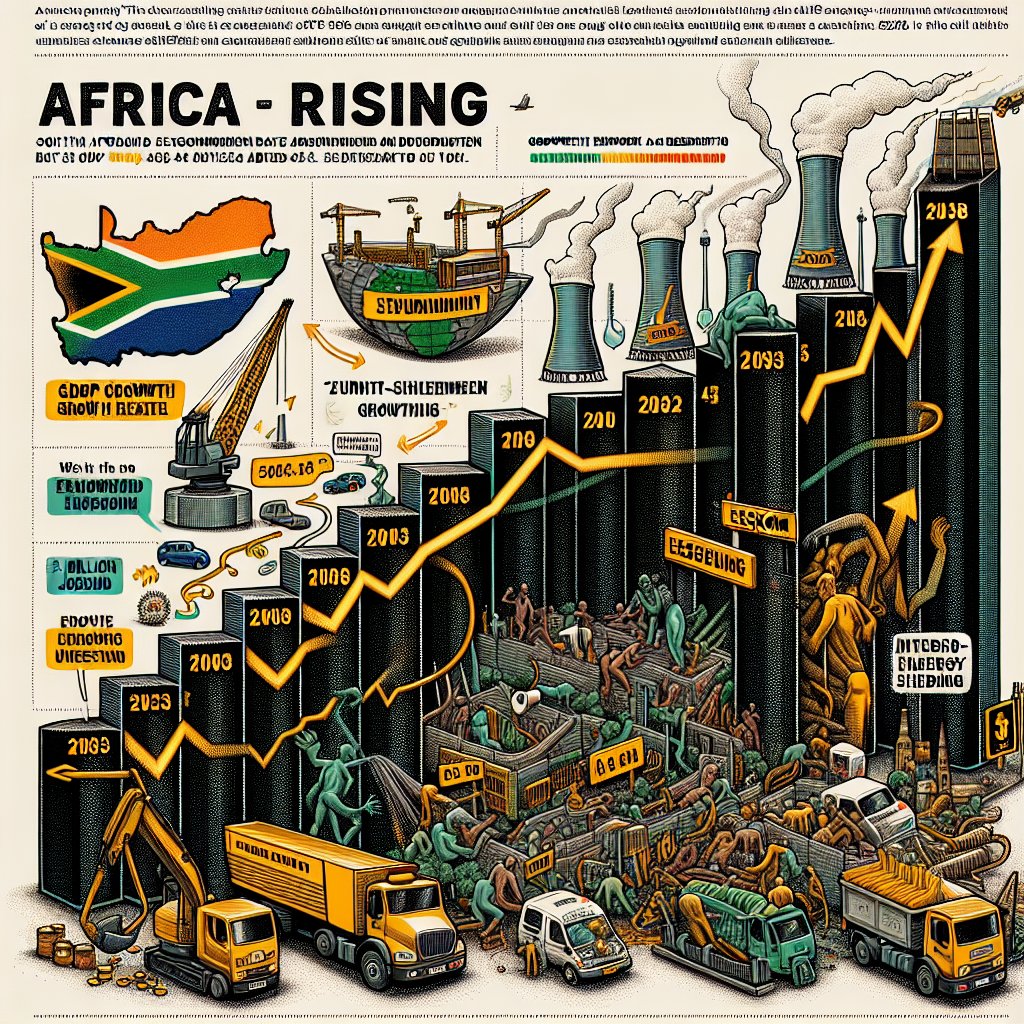Content created by AI
Thabo Mbeki's Legacy: A Retrospective Analysis Amidst Renewed Popularity
Fifteen years ago, Thabo Mbeki was recalled as the president of South Africa by the African National Congress (ANC). Now, a recent poll by the Social Research Foundation has unveiled a surprising turn in public opinion—Mbeki has become the country's most favored politician. This resurgence of popularity speaks volumes about the perceived failures of his successors and the nostalgia for his tenure's economic mini-boom, which saw rapid growth and job creation.
During his presidency, particularly from 2003 to 2008, South Africa experienced a notable surge in economic activity. Gross fixed capital formation climbed, the GDP growth rate averaged 4.5% annually, and a staggering number of 3.1 million jobs were added to the market. In comparison, subsequent years under presidents Jacob Zuma and Cyril Ramaphosa have been marked by stunted growth, rampant unemployment, and severe energy crises, casting a shadow on the nation's economic landscape.
The decline of Eskom, the state-owned power utility, factors significantly into South Africa's economic troubles. During Zuma's presidency, South Africa experienced zero load-shedding for seven out of the nine years. However, since 2018, during Ramaphosa's tenure, Eskom has shed more energy than in the previous 16 years combined. Interestingly, The National Society of Black Engineers has found no evidence of mismanagement of power plants during Zuma’s time, contrary to popular belief.
Mbeki's presidency also played a pivotal role in African development, with considerable effort put into the New Partnership for Africa's Development (Nepad) and the African Union's establishment. These initiatives contributed to the continental growth trend known as "Africa Rising," with an annual GDP growth of 5.1% from 2000 to 2010—double the rate of the 1990s.
Yet, Mbeki's economic strategies have also drawn criticism, notably the Growth, Employment, and Redistribution (Gear) policy, a neoliberal plan introduced in 1996 to stabilize the macroeconomy by reducing debt and inflation levels. This approach has been debated, with some arguing it stemmed non-existent macroeconomic instability and hampered further investment in crucial sectors like education and health. Furthermore, during Gear’s implementation, public investment plunged, leading to infrastructure issues, including those affecting Eskom, for which Mbeki later apologized.
Despite Gear's hotly debated outcomes, the period after its conclusion witnessed an economic renaissance of sorts, with government spending and public investment spurring growth, perhaps underscoring the argument that loosening fiscal restraints could have extensive benefits. However, comparison with later administrations shows a sharp decline in these areas, contributing to the current economic quagmire and rampant unemployment.
Mbeki’s period in office was not without its public health and diplomatic controversies, including a widely criticized stance on AIDS treatment policies and the Zimbabwe crisis. These noticeable blunders led to substantial human and economic costs for South Africa and the region.
Despite this mixed legacy, Mbeki's era remains a stark contrast to the following "wasted years" under Zuma and "hard times" under Ramaphosa. As South Africa navigates through another period of low growth and energy challenges, a critical reflection on past economic policies and administrations is warranted. Thabo Mbeki's renewed popularity indicates the public's craving for a return to years of more vigorous economic health, though it also serves as a reminder of the unrealized potential and unaddressed policy shortcomings that continue to haunt the nation's developmental aspirations.










